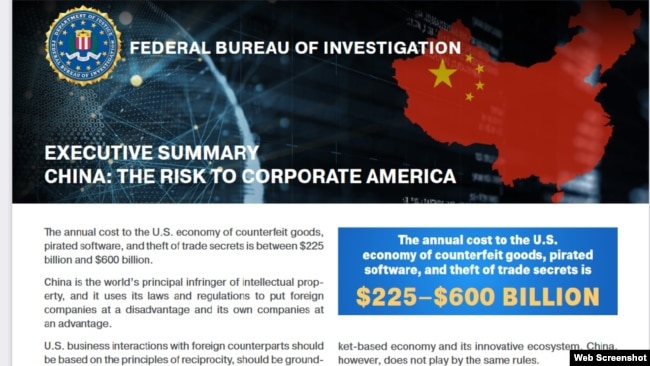The US is moving to charge Chinese companies behind the crisis in painkiller overdoses.
2023.07.03
 Plastic bags of Fentanyl are displayed on a table at the U.S. Customs and Border Protection area at the International Mail Facility at O'Hare International Airport in Chicago, Illinois, U.S. November 29, 2017. Picture taken November 29, 2017
Plastic bags of Fentanyl are displayed on a table at the U.S. Customs and Border Protection area at the International Mail Facility at O'Hare International Airport in Chicago, Illinois, U.S. November 29, 2017. Picture taken November 29, 2017
The United States is muscling up to turn around what might be described as the Opium Wars Part II, even if it was Britain, not the U.S., that was perpetrator of the first two in the 19th century.
In an interview with NBC’s Meet the Press on Sunday, Drug Enforcement Administration administrator Anne Milgram called for further cooperation from China and Mexico to battle the U.S.’s synthetic opioid crisis.
Milgram said that even though the D.E.A. was “ready to work with anyone who will work with us,” China has not been cooperative, adding that the Mexican government also “needs to do more.”
Fentanyl, an extremely heavy-duty painkiller, is behind what the U.S. Centers for Disease Control and Prevention calls an “opioid overdose epidemic.” The drug is responsible for tens of thousands of deaths each year – and the numbers are continuing to rise.
Just over a week ago, the U.S. for the first time filed prosecutions against Chinese companies and individuals involved in manufacturing the precursor chemicals used to make fentanyl, which has flooded the country via Mexico.
The Department of Justice filed criminal charges in New York on June 23 against four Chinese companies and eight individuals, alleging that they “knowingly manufactured, marketed, sold, and supplied precursor chemicals” for illegal fentanyl production in the U.S.
Attorney General Merrick Garland said that Chinese companies openly advertised the chemicals on social media platforms and stealth shipped them to buyers.
“We are targeting every step of the movement and manufacturing sale of fentanyl, from start to finish,” Garland said, according to reports.
“Just one of these China-based chemical companies shipped more than 200 kilograms [441 pounds] of fentanyl-related precursor chemicals to the U.S. for the purpose of making 50 kilograms of fentanyl, a quantity that could contain enough deadly doses of fentanyl to kill 25 million Americans,” Garland said.
A federal court in New York charged Hubei Amarvel Biotech, Anhui Rencheng Technology, Anhui Moker New Material Technology and Hefei GSK Trade in three separate cases.
The eight individuals charged included executives and employees of the four companies.
The two people arrested, both employees of Hubei Amarvel, were expelled from Fiji and taken into custody by U.S. officials and held in Honolulu, Hawaii.
Diplomacy on the rocks
The announcement of the prosecutions came shortly after U.S. Secretary of State Antony Blinken visited Beijing, where he met with Chinese leader Xi Jinping.
Blinken raised the issue of stemming the flow of chemical components for fentanyl to laboratories in Mexico, where the finished substance is believed to be made before being shipped and smuggled to the U.S., but no progress was made.
It is a contentious issue that has yet to gain traction with Beijing, despite it being raised repeatedly.
Speaking on the Biden-Harris Administration’s approach to foreign policy, in New York, in a public discussion moderated by the Council on Foreign Relations President Richard Haass on June 28, Blinken said that the Fentanyl issue was an issue “worth pausing on.”
Blinken added: “The No. 1 Killer – the No. 1 killer – of Americans aged 18 to 49 is fentanyl.
“So, if you start with that premise, it makes sense that you’d want to be focusing a lot of your time and resources and effort on that. And we are. And indeed, as I just mentioned, in a couple of weeks’ time, we’ll be moving forward with a broader international coalition to deal with this.”

China’s Ministry of Commerce condemned the most recent moves by the U.S.
“China has always enforced rigorous anti-drug measures and, guided by humanitarianism principles, has taken the lead in globally controlling substances like fentanyl,” Chinese state media reported the ministry’s website as saying last week.
The foreign ministry, meanwhile, demanded the immediate release of Chinese citizens who were “illegally arrested.”
“China urges the U.S. side to stop dumping blame and to stop smear attacks on China,” the ministry said in a statement.
‘Down payment on a pledge’
Deputy Attorney General Lisa O. Monaco of the U.S. Attorney’s Office, Southern District of New York, said in a statement: “Today’s announcement is a down payment on our pledge to use every tool in the government’s arsenal, in every corner of the globe, to protect American communities.
“The Justice Department will not rest or relent in investigating and prosecuting every link of the fentanyl supply chain, including the PRC companies and executives who produce and export vast quantities of the precursor chemicals the drug cartels need to peddle their poison. There can be no safe haven.”

In late May the US Treasury Department’s Office of Foreign Assets Control announced new sanctions against seven entities and six individuals based in China, as well as one entity in Mexico.
China has long countered that the U.S. needs to control its apparently insatiable appetite for illicit drugs.
As nationalist state tabloid, The Global Times, editorialized on Monday, “The U.S. has never been able to solve its drug problem. The U.S. drug epidemic’s root cause lies within the country itself … The opioid epidemic in the U.S. is mainly due to the long-term and widespread abuse of prescription painkillers. The U.S. government continues to push for the legalization of marijuana, playing a role in condoning and exacerbating the problem.”
Foreign ministry spokeswoman Mao Ning said last week. “These are common commodities, which are not controlled both at home or abroad … “The importer is responsible for preventing related equipment from flowing into drug production channels.
“If someone commits a crime with a knife, it is very clear whether the person who wields the knife or the manufacturer of the knife should be sanctioned and punished,” she added.
The Wall Street Journal recently reported that Chinese social platform WeChat is being used to facilitate payments for chemicals, according to Robert Zachariasiewicz, a former senior supervisory agent for the Drug Enforcement Administration.
Once payments have been made, Chinese suppliers send chemical components to laboratories in Mexico. It is then illegally shipped to the U.S. where it is “sold to end users for cash by networks that are often controlled by Chinese nationals or the Chinese diaspora,” the report said.
Edited by Mike Firn.
https://www.rfa.org/english/news/china/us-china-fentanyl-07032023220545.html










